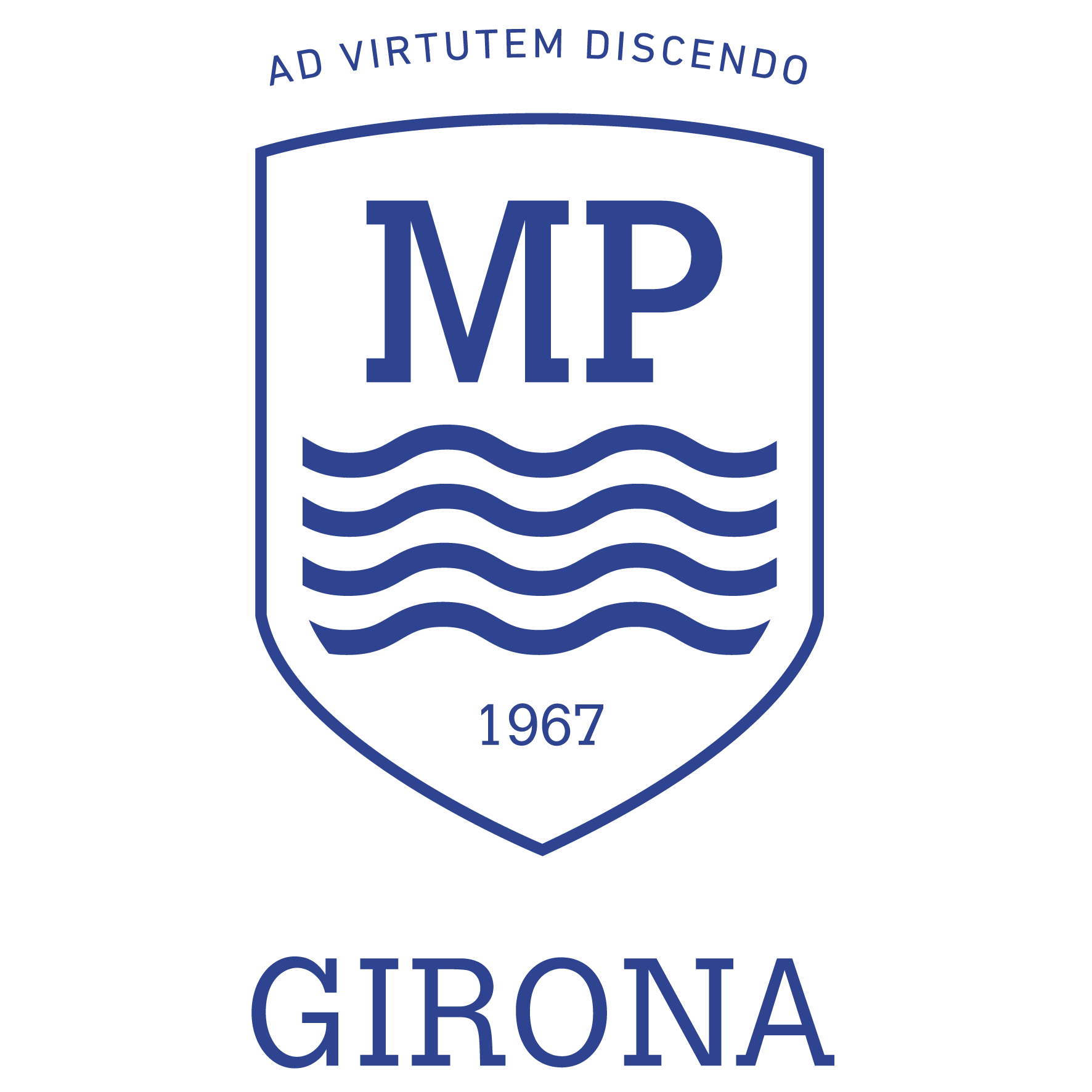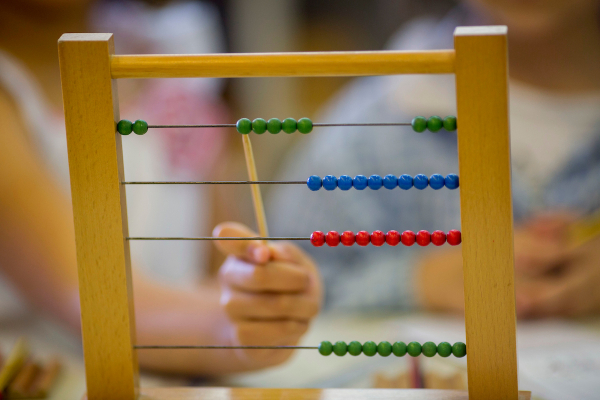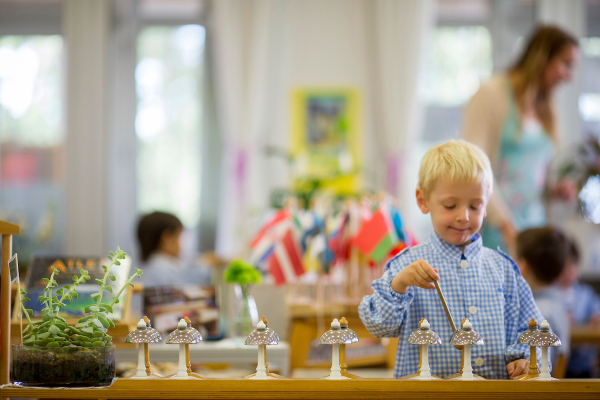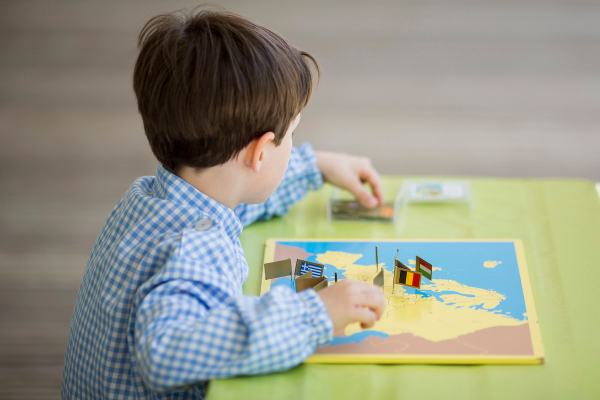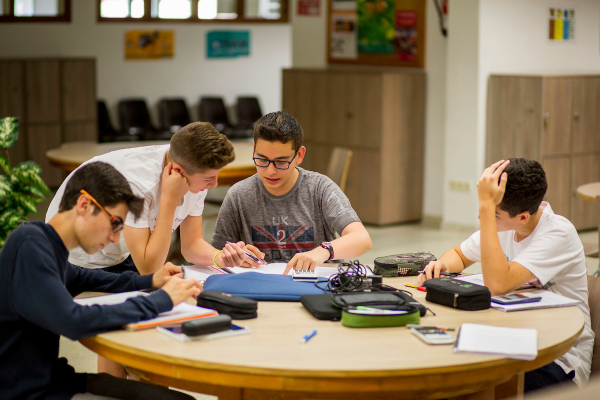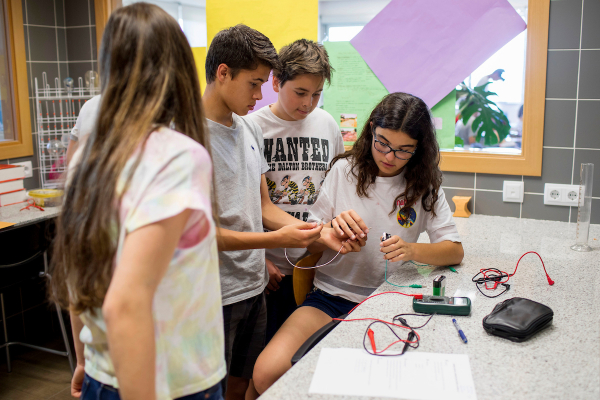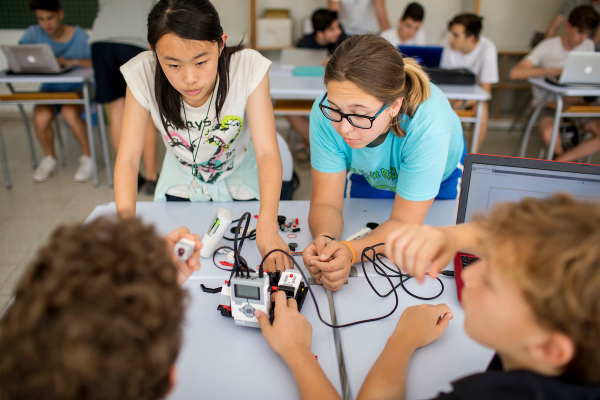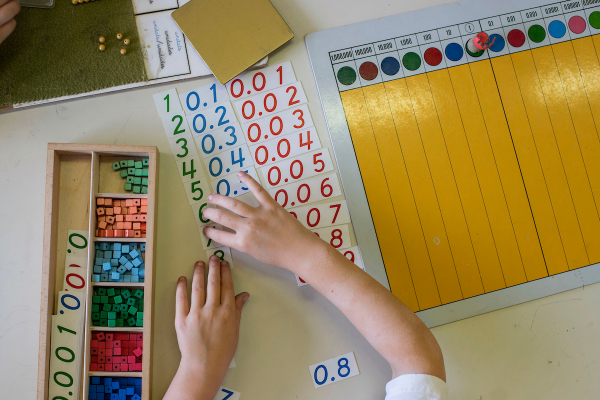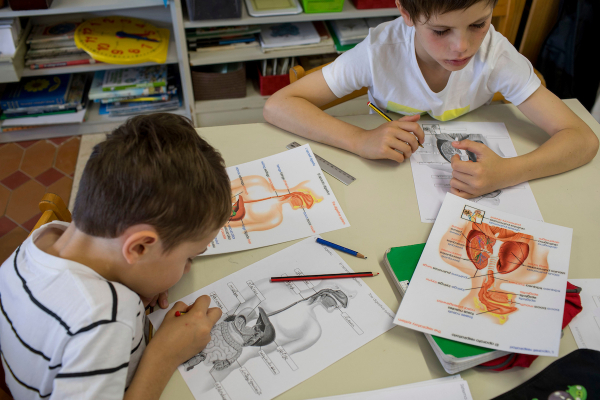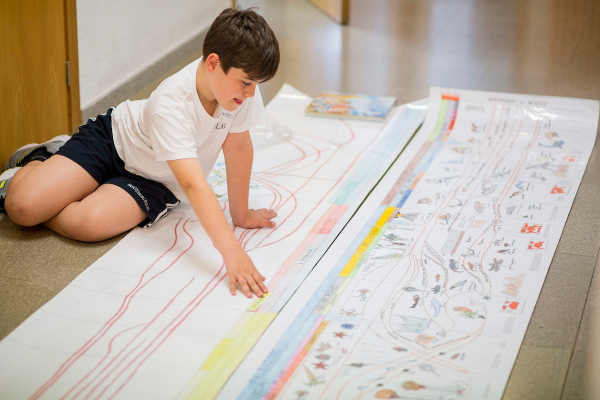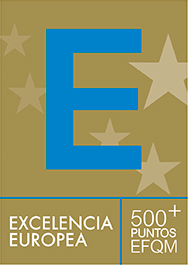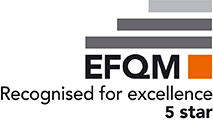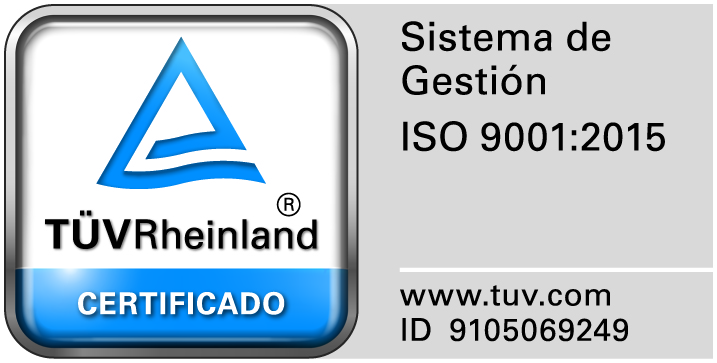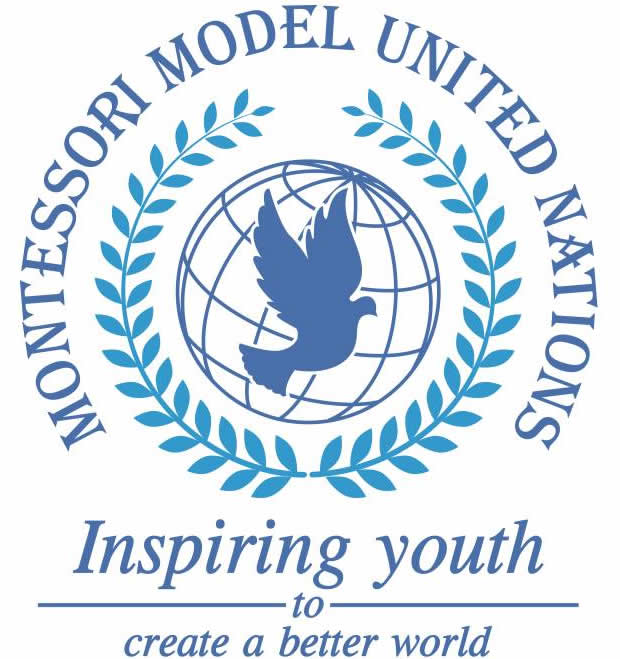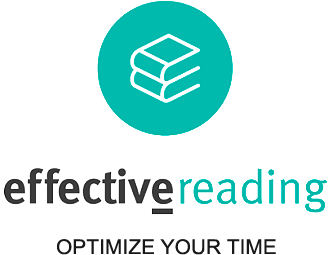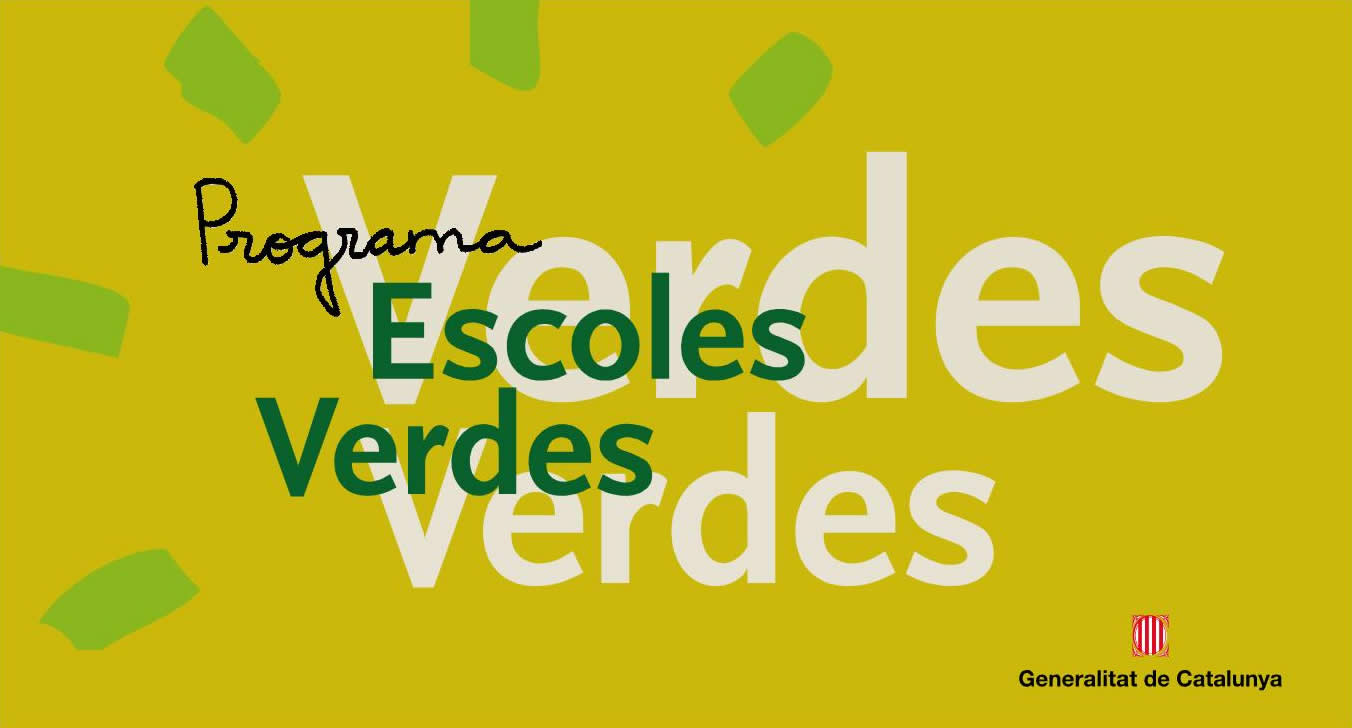The design of the curriculum and its extensions
Based on the Montessori Educational Method, the curriculum takes the sensitive periods and psychological characteristics of the student and human tendencies into account. The accreditation of the teaching staff by the Association Montessori Internationale (AMI) guarantees the authenticity of the applied Montessori methodology.
The Infant Education curriculum and its extensions
The Infant Education Curriculum at Montessori Palau Girona goes beyond the official curriculum. Its main basis is the Montessori educational method and the principles of early stimulation. The fundamental objective is the adaptation of the child to the world through neuro-sensory-psychomotor development and social experience. Bearing in mind the psychological characteristics of children and their sensitive periods, students have the opportunity to work independently with developmental materials that simultaneously stimulate multiple skills or intelligences, taking the development and refinement of the senses and movement into account, and enhance language and communication with classmates and adults by being put into daily contact with the four languages.
The Primary Education curriculum and its extensions
The Primary curriculum is based on the characteristics of children between the ages of 6 and 12, who have a great interest in acquiring culture as well as in intellectual and moral development. This basis, founded on the Montessori Educational Method, results in a curriculum that includes all areas of knowledge in an interdisciplinary manner in accordance with the interests of each student. Dr Montessori called this global vision of the curriculum a "Cosmic Education", as the child has the need and interest to know the whole world, with a clear outline of how to study their surroundings.
In order to be able to achieve this programme, the students have a long school day, so that, respecting the pace of every child, they can carry out their own explorations, develop their own ideas and experiment in the different fields. This allows the development of creativity, initiative and personal autonomy and, at the same time, guarantees that the demands of the official programmes can be met.
The prepared environment and the role of the adult encourage the child's work through the presentation of either the Montessori developmental materials or those of our own design. Students will be able to choose which activities they want to take part in, and it is through the repetition that they start to self-construct themselves. The milestones for each subject are very ambitious, providing a wealth of content in all areas, experiences that help the growth of each child following a process that Dr Montessori called "normalisation" (nowadays it can be related to self-control and individual and social responsibility).
The languages employed in Primary Education are Catalan, Spanish, English and German. The first three are worked on according to the same method and based on the mother tongue theory, through which the students carry out equivalent activities that allow them to apply the knowledge of one language to another. Using these as the working languages of school life, an equivalent level in the three languages is obtained.
Supporting the requirement for a Cosmic Education, students in the upper Primary groups have the opportunity to participate in international activities such as the Montessori Model of United Nations (MMUN). This gives them a universal vision of reality at the same time as relating to students from different countries, addressing the need for cultural development.
The Secondary Education curriculum and its extensions
The student continues to develop initiative and autonomy through the use of an outline sheet for the didactic unit, which presents different research projects and guidelines for discovery, led by the student’s individual needs. This work system is designed so that students, using their creativity, maintain the desire to continue learning. The curriculum includes the possibility of working in up to six languages: Catalan, Spanish, English, French, German and Latin; and access to participate in contests and awards that cover all areas of knowledge and are detailed in the section on Projects to Encourage Talent. In addition to the official curriculum, at the Secondary stage we work more thoroughly and dedicate more class hours to English language, mathematics, the two official languages (Catalan and Spanish) and the science subjects of physics and chemistry. Also, more sessions are dedicated to the body through extra Physical Education sessions such as physical expression.
A greater closeness to the real world allows for what are known as the Service and Production Occupations, which can create micro-economies and are managed by the students themselves. Among the service occupations are tasks supporting the Primary classes, and administrative, management and communication support tasks. And production areas include occupations related to the kitchen garden and gardening, radio and the production of products using recycled paper.
In the 4th year of ESO, students have the opportunity of a placement in a company based on an agreement between the School and the Montessori Alumni Association, by which students can undertake work experience in a company either owned by or managed by one of the alumni. In the 1st year of the baccalaureate, students can carry out the 'Work Experience' assignment and, as in the case of 4th year ESO, undertake internships and get to know the basic aspects of how the companies work, their needs and routines.
The education is personalised, since each teacher plans the objectives for each student. For this reason, the design of the curriculum is focused on bringing out the potential of each student in relation to their capacities, their emotional, social and creative intelligence, their initiative and personal autonomy. With the extensions, advanced students will be able to work individually on certain activities in order to broaden and enhance their knowledge.
In addition, the School ensures they have the required knowledge in those subjects to successfully pass the external examinations required by law. The fifty years of teaching at Montessori Palau Girona mean that the design and revision of the curriculum is based on the experience, theoretical and technological knowledge of the School itself, together with the selection and integration of educational innovations.
The Innovation and Training Section, together with the Department of Psychology and Counselling and the educational teams, works with the advice of international research centres, including the AMI, who have identified the convergence between current research in neuroscience and the Montessori method. The studies that are currently being carried out in neuroscience endorse the effectiveness of this methodology in education.
The education is personalised, in that each teacher plans objectives for each student. For this reason, the curricular design is aimed at bringing out the potential of each student in relation to their abilities, their emotional, social and creative intelligence, initiative and their personal autonomy. With the extensions, advanced students in some of the activities will be able to work individually in order to broaden and enhance their knowledge.
In addition, the School ensures they have the required knowledge in those subjects to successfully pass the external examinations required by law. The fifty years of teaching at Montessori Palau Girona mean that the design and revision of the curriculum is based on the experience, theoretical and technological knowledge of the School itself, together with the selection and integration of educational innovations.
The Innovation and Training Section, together with the Department of Psychology and Counselling and the educational teams, works with the advice of international research centres, including the AMI, who have identified the convergence between current research in neuroscience and the Montessori method. The studies that are currently being carried out in neuroscience endorse the effectiveness of this methodology in education.
